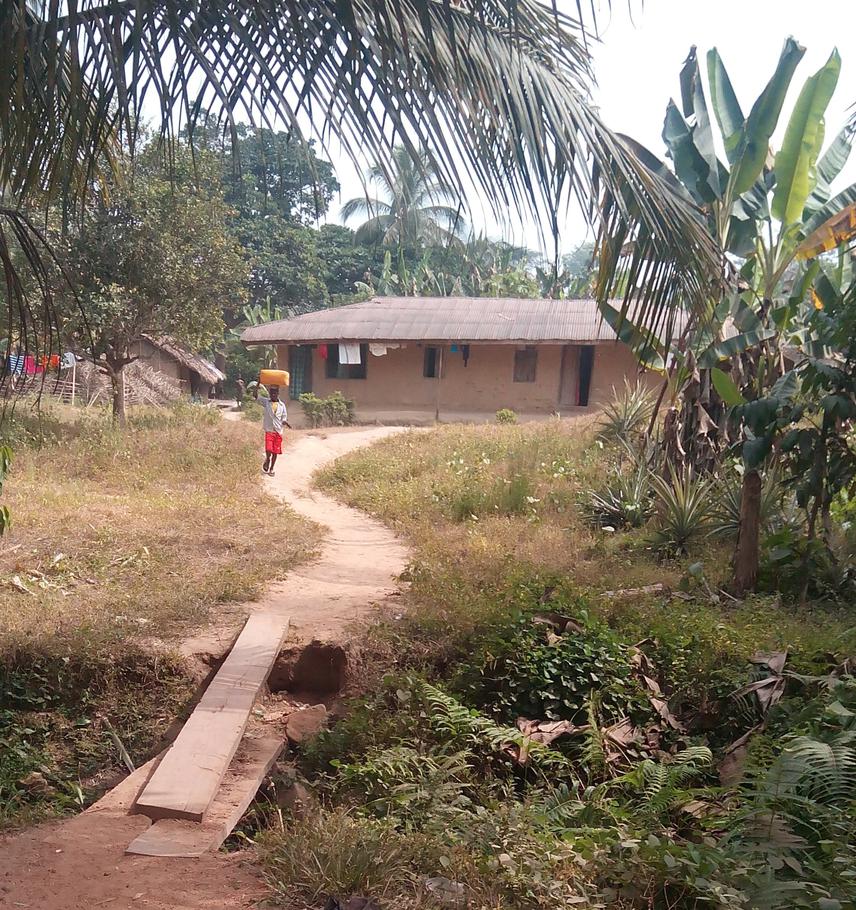Stephen Mufutau Awoyemi
To assess the potentials of faith-based groups to positively impact the conservation of wildlife consumed as bushmeat in Cross River State, Nigeria.

A young boy returning from fetching water in Iko Esai community.
There is a widespread practice of hunting animals for bush meat consumption in Cross River State Nigeria. This is a threat to protection of endangered wildlife in the region. The practice of bush meat consumption is intimately connected to culture. However, there is a strong potential of faith-based groups within Christianity in influencing change in people’s culture and behaviour, and this could be explored to initiate a conservation strategy for wildlife. This project will therefore investigate the possibility of faith-based conservation to reduce over exploitation of wildlife for bush meat consumption among peoples in Cross River State Southeast Nigeria. Households within local communities near a protected area near Calabar, Cross River State, Nigeria will be randomly surveyed. In line with the research objectives, respondents will be asked if they hunt or consume wildlife, their alternative sources of protein, and if consumption of wildlife as bush meat is just a delicacy.
Information as regards where the wildlife are obtained and the species will also be collected. The local respondents will then be asked if bush meat consumption is part of their culture and if this will influence their decision to stop the consumption. In addition, they will be asked how they perceive the priority of protecting wildlife in the national context, and if they will change their behaviour in favour of conservation as regards bush meat consumption when prompted by their faith leaders to do so. The leaders of different Christian denominations in the local communities will be purposely sampled for questionnaire administration and interviews. Their knowledge of biodiversity conservation will be assessed. They will also be interviewed to determine their perceptions on incorporating conservation of wildlife in their messages as well as encouraging their followers to practise same. Faith leaders will be told the facts about bush meat consumption and how species will be driven to extinction if this is not addressed. In addition, the Biblical basis for the stewardship of creation (e.g. Genesis 2:15) will be presented as the basis for the justification against bush meat consumption. Finally, the response of different faith groups (within Christianity) will be compared to determine:
1) the groups with the highest frequency that agree that they would be influenced by their leaders to change behaviour to benefit conservation;
2) the groups with the highest frequency that indicate that wildlife conservation is not a priority for them.